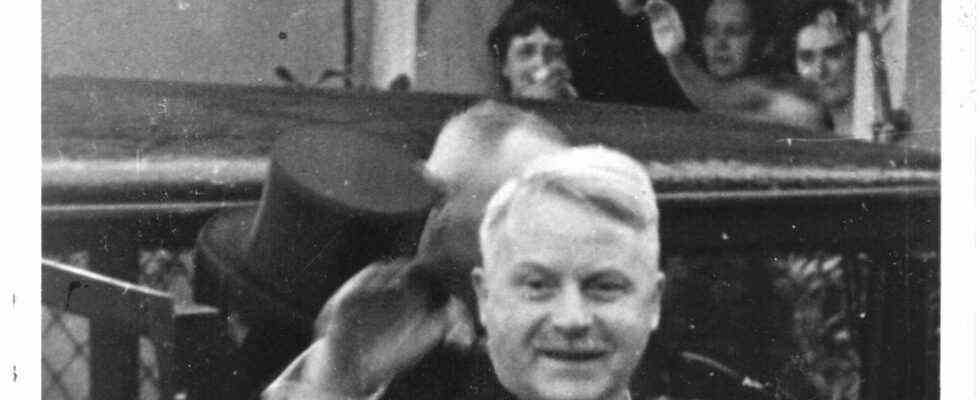Was Hans Meiser, regional bishop of the Evangelical Lutheran Church in Bavaria from 1933 to 1955, a Nazi bishop? The political attitude of the cleric during the Nazi regime has often been the subject of debate, especially in the recent past. A lively discussion can now also be expected for the meeting of the Pullach municipal council on Monday. The committee will decide on an application from the community history forum to rename Bischof-Meiser-Strasse.
If the application is accepted, the new namesake of the street will be Richard Eylenburg, a victim of the Nazis who spent years in concentration and labor camps, found life in Pullach after the war and, as a staunch social democrat, was elected second mayor of the community in 1952. But now, of all people, the Pullach SPD has left the group of proponents of the street renaming, which is why people in the camp of the history forum clap their hands over their heads.
The attitude of the SPD is surprising at first glance, as its two representatives in the local council, Holger Ptacek and Michael Schönlein, voted in April for the community to prepare the renaming of the street. Where the change of heart comes from, both will have on November 11th in Isar indicator together with the SPD local association chairman Peer Wallenborn explained. After studying the documents, they had “doubts as to whether a renaming is justified”. The three Social Democrats write that the text “The Evangelical Church and the Jewish Question”, published in 1926, contained shocking, anti-Semitic statements by Meiser. But these quotes are contrasted with other passages in the text in which Meiser rejects the persecution of Jews for “racial” motives, calling it a Christian duty to protect them against this kind of persecution.
The accusation that his 1926 pamphlet promoted the Shoah is serious, but does not match the Nazis’ assessment of his person as a friend of the Jews. After the war, Meiser rendered outstanding services to a dialogue with the Jewish community and received appreciation from many quarters, including the Munich chief rabbi. “Whatever his convictions in the 1920s, he changed his mind at the latest after the war,” the text goes on to say. And finally the SPD trio asks the rhetorical question: “Who can say for sure whether he / she has what it takes to go to prison, concentration camp or the scaffold for humanity and morality?”
In the camp of the Pullach History Forum, people react with regret to the attitude of the SPD. Above all, it is incomprehensible that the SPD does not take into account and dignify the established scientific and ecclesiastical assessment, but instead makes unsubstantiated claims, countered the four-member board of the history forum. The application to rename Bischof-Meiser-Strasse is also supported by the Evangelical Lutheran Church in Germany. The rift between the history forum and the SPD seems deep: Ptacek told the SZ that he had already been advised to leave the history forum. He was part of the founding board.

